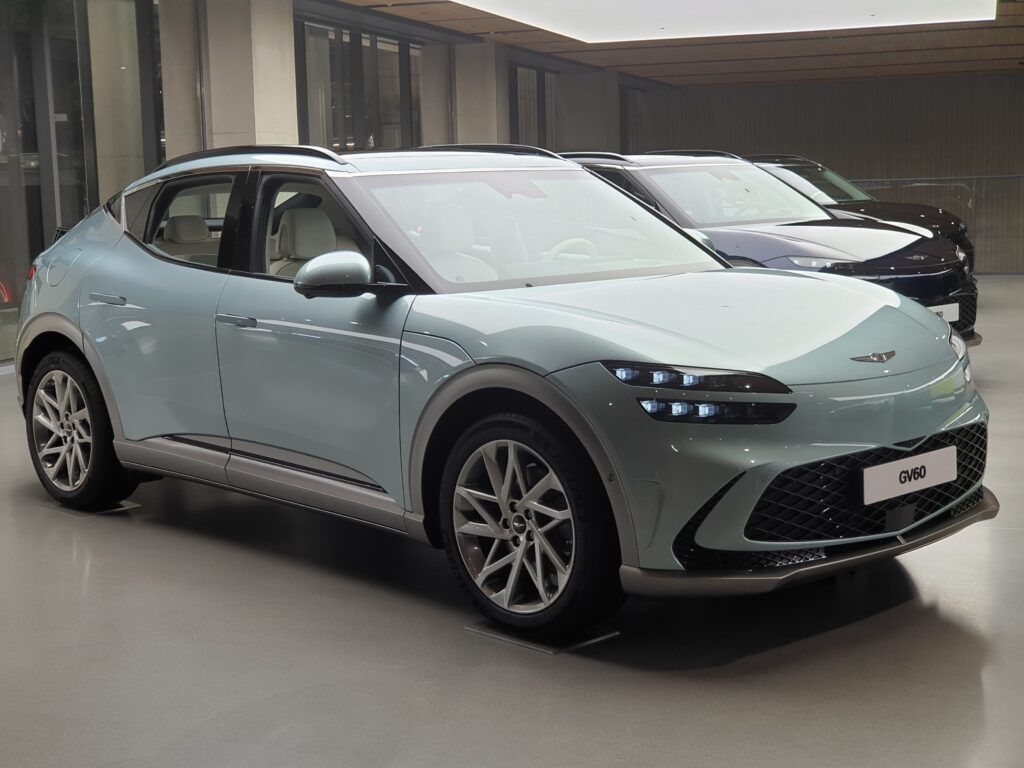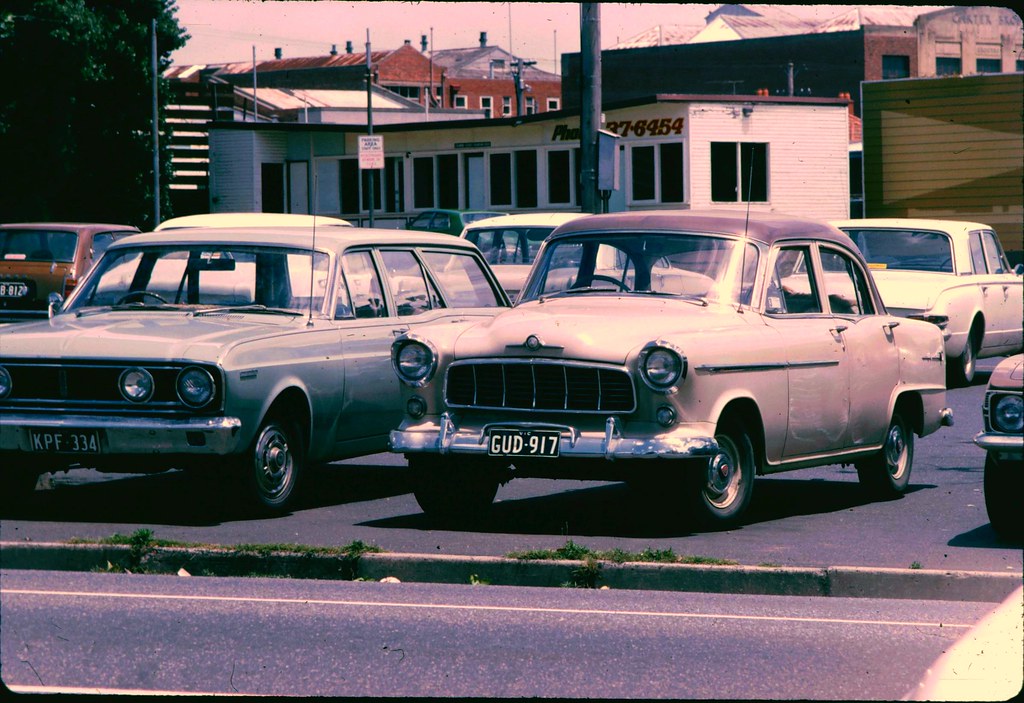
Pickup trucks have carved out an undeniable niche in the modern automotive landscape, becoming far more than just utilitarian workhorses. Their inherent versatility, combining generous cargo space with unparalleled towing capacities, makes them the obvious choice for a vast array of tasks, from hauling heavy loads across challenging terrain to serving as dependable daily drivers. This surging popularity underscores a fundamental truth for countless owners: a truck isn’t merely a vehicle; it’s an essential tool, a partner in productivity, and a significant investment that needs to consistently perform without fail.
When you depend on a vehicle for critical tasks, whether those involve demanding professional duties or adventurous weekend excursions, reliability isn’t merely a desirable trait—it’s an absolute necessity. The last thing any owner wants is the burden of unexpected downtime, the shock of soaring repair costs, or the profound frustration of owning a vehicle that simply cannot be counted on when it matters most. This vital demand for dependability is precisely why insights garnered from experienced mechanics are invaluable; they represent the frontline experts who witness, day in and day out, which vehicles truly endure the relentless rigors of the road and which regrettably falter under pressure.
Mechanics possess a unique and unfiltered perspective on true long-term durability, a viewpoint honed by countless hours of diagnostics and repairs. Their recommendations cut through layers of marketing hype and flashy features, focusing instead on the tangible realities of real-world performance, inherent resilience, and the sheer grit required for a truck to stand the test of time. In an era where vehicle longevity is increasingly paramount, and with the persistent rise in repair costs and new truck prices, understanding which models genuinely stand out for their steadfastness is more critical than ever before. This comprehensive guide, informed by expert wisdom, compiles a definitive list of pickup trucks that mechanics across the board laud for their exceptional reliability and their uncanny ability to “never break,” or at the very least, to perform satisfactorily for hundreds of thousands of miles with diligent and proactive maintenance. Join us as we explore these enduring machines, starting with the robust contenders in the ever-popular small and mid-size truck segments, uncovering what makes them true workhorses.
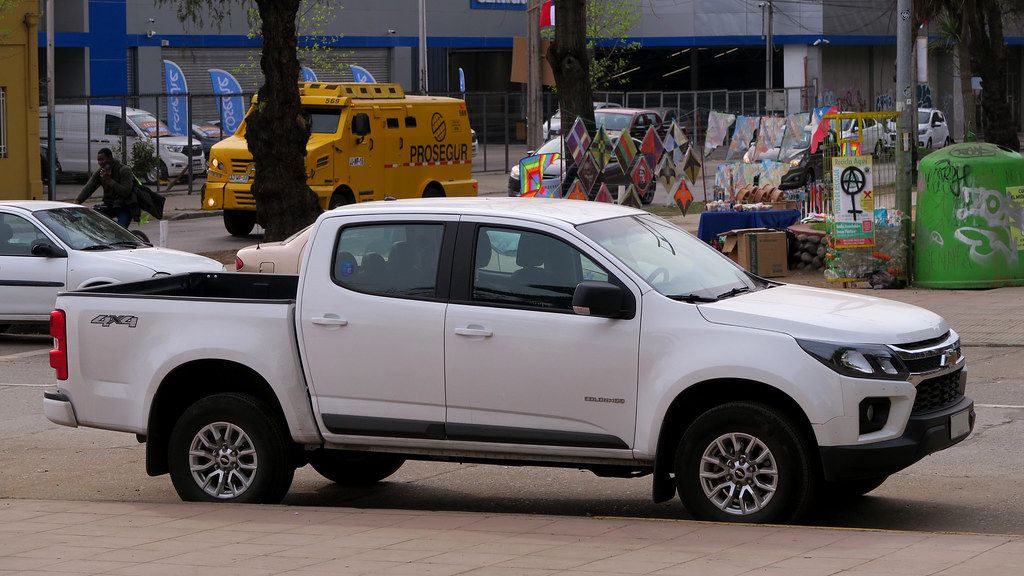
1. **Chevrolet Colorado**The Chevrolet Colorado, particularly tracing back to models produced up until 2011, initially carved its reputation as a highly capable compact pickup truck. While the nomenclature has evolved, with many contemporary Colorados now classified within the mid-size segment, its foundational design principles and historical legacy firmly secure its place among those considered true small trucks. This understanding of its lineage is crucial, as the earlier iterations of the Colorado established a high benchmark for what a smaller truck could deliver in terms of both practical utility and surprising fuel efficiency, a reputation that continues to resonate with seasoned mechanics.
A paramount reason for the Chevrolet Colorado’s enduring popularity and its frequent recommendation by automotive professionals lies in its remarkably low ownership costs and an almost legendary reputation for reliability. These intrinsic qualities are often expected for a truck of its comparatively smaller stature, where efficient operation and cost-effectiveness are frequently prioritized in its engineering. Its intelligent design inherently contributes to lower gas consumption, presenting a significant and tangible advantage in the context of rising fuel prices and daily operational expenses. Further validating its robust nature, independent assessments by RepairPal bestow upon the Colorado an impressive 4.0 out of 5.0 reliability rating, solidifying its status as a consistently dependable choice.
Beyond its favorable fuel economy and strong reliability scores, the Colorado’s more compact dimensions play a pivotal role in its notably low annual maintenance costs, which hover around a very appealing average of $600. This figure positions it as an incredibly attractive option for owners who are acutely conscious of their budget and seeking long-term value. Furthermore, the truck exhibits a low severity rating for repairs, implying that should any issues arise, they are overwhelmingly unlikely to necessitate major, budget-straining overhauls. This formidable combination of infrequent mechanical problems and a propensity for minor, easily manageable repair requirements means the Chevrolet Colorado truly offers a remarkable suite of cost-saving qualities throughout its operational life, directly contributing to its “never break” reputation.
These cumulative factors of inherent durability, efficient operation, and minimal repair burdens coalesce into an impressive potential for longevity. The Chevrolet Colorado is frequently observed achieving an astonishing 250,000 to 300,000-mile streak with nothing more than scrupulous routine maintenance. To truly unlock and fully capitalize on this extraordinary potential for decades of unwavering, dependable service, owners must, however, commit unequivocally to a strict and punctual adherence to all standard maintenance schedules recommended by the manufacturer. This diligent approach is not merely advised but is essential for realizing its full lifespan.
When considering the average of 14,263 miles typically driven per year in the United States, this exceptionally robust truck can comfortably provide reliable service for anywhere from 17 to 20 years. Such an extended period of functionality unquestionably positions the Chevrolet Colorado as a truly remarkable long-term investment for any individual or business seeking a steadfast workhorse. Its design integrity and build quality make it a consistent performer, reinforcing why mechanics hold it in such high regard as a truck that consistently goes the distance.
Car Model Information: 2024 Chevrolet Colorado Z71
Name: Chevrolet Colorado
Caption: 2024 Chevrolet Colorado Z71
Manufacturer: General Motors
Production: 2003–2012, 2014–present (US),2004–2020
(Thailand),2011–present (Brazil)
Class: Pickup truck,Pickup truck
Layout: Front-engine, rear-wheel-drive layout
Predecessor: Chevrolet S-10,Chevrolet D-Max,Holden Rodeo,Holden Ute
Aka: GMC Canyon,Holden Colorado
Categories: 2010s cars, 2020s cars, All-wheel-drive vehicles, All articles with dead external links, Articles with dead external links from November 2016
Summary: The Chevrolet Colorado (sharing mechanical commonality with the GMC Canyon) is a series of compact pickup trucks (mid-size since second generation) marketed by American automaker General Motors. They were introduced in 2004 to replace the Chevrolet S-10 and GMC S-15/Sonoma compact pickups. The Colorado is named after the U.S. state of Colorado, while the Canyon took its name from the deep chasm between cliffs.
Get more information about: Chevrolet Colorado
Buying a high-performing used car >>>
Brand: Chevrolet Model: Colorado
Price: $37,999 Mileage: 22,663 mi.
Read more about: Smart Choices for the Golden Years: 12 Top SUVs Retirees Should Consider Buying in 2025

2. **Ford Ranger**The Ford Ranger stands as another formidable and highly regarded contender within the small truck category, consistently demonstrating its capacity to deliver the full functionality and rugged utility expected of a pickup, all while simultaneously offering a notably commendable fuel economy. This finely tuned balance between robust performance and efficient operation makes it an exceptionally appealing option for a broad spectrum of drivers who require legitimate truck capabilities but are also mindful of the significant fuel consumption often associated with larger, more imposing vehicles. The Ranger’s adeptness at blending practical utility with economical daily operation is unequivocally a primary reason for its consistently strong standing among both experienced mechanics and a loyal consumer base.
Further solidifying its reputation for capability, U.S. News specifically lauds the Ford Ranger for possessing “excellent towing and hauling capabilities,” a testament to its inherent strength and intelligently engineered chassis, despite its relatively smaller physical footprint. While these impressive performance metrics are certainly a compelling aspect, a professional mechanic’s recommendation often extends well beyond just raw power and payload capacity, delving instead into the vehicle’s profound underlying dependability and structural integrity. It is worth noting that while the Ranger is exceptionally reliable, it might not always match the absolute top-tier reliability scores of, for instance, the Chevrolet Colorado in certain specific metrics. Instead, the Ranger’s preeminent selling points are consistently found in its outstanding overall performance, its inherently robust engineering, and its diligent integration of modern, advanced safety features that provide peace of mind to its occupants.
The longevity prospects for the Ford Ranger are equally impressive, cementing its reputation as a vehicle built for the long haul. This truck is engineered with the durability to easily reach and, in many well-maintained cases, comfortably surpass the impressive 300,000-mile operational bar, provided it receives the necessary and consistently diligent maintenance throughout its life. This exceptional and long-lasting performance is a powerful testament to Ford’s unwavering commitment to designing and manufacturing genuinely durable vehicles, even within the highly competitive compact truck segment where compromises might otherwise be made. Such an extensive and reliable lifespan directly translates into more than 20 years of practical, consistent, and dependable use for the average driver, once again based on the established annual average of 14,263 miles driven in the United States.
Adding a contemporary layer to its already solid reputation, the Ford Ranger recently earned the distinguished and highly coveted title of “most reliable truck in 2025” according to the rigorous data compiled by Consumer Reports. This is a significant and influential accolade that speaks volumes about its enduring quality, consistent performance, and the manufacturer’s continuous efforts to refine its reliability. Ford trucks, as a brand, perform exceptionally well in these thorough reliability assessments, with the Ranger commendably leading the charge for the entire lineup. This modern endorsement serves to firmly solidify its unwavering position as a consistently dependable small pickup, a status it has maintained with distinction even years after its initial market releases, proving its timeless value.
Car Model Information: 2021 Ford Ranger XLT
Categories: All set index articles, Articles with short description, Cars introduced in 1982, Commons category link from Wikidata, Ford vehicles
Summary: The Ford Ranger is a compact or mid-size pickup marketed globally by Ford over a series of generations, varying between both in-house or outside development and manufacturing — and with a hiatus in North America from 2011–2018.
Debuting as a compact pickup in North America in 1982 for the 1983 model year, the Ranger was later introduced in some South American countries. From 1998 to 2011, the Ranger nameplate was used for models developed by Mazda for sale outside the North American market. In 2011, Ford introduced the first Ranger based on the T6 platform. Considered a mid-size pickup truck, the model was developed in-house by Ford Australia. In that same year, the North American-market Ranger was discontinued, leaving the T6 platform-based Ranger as the sole Ranger model worldwide.
For the 2019 model year, the Ranger was reintroduced in North America using the globally-marketed T6 model. It is manufactured at the Michigan Assembly Plant at Wayne, Michigan. The Ranger is smaller than the F-150 and larger than the Maverick in the Ford North American pickup truck range, while for markets outside the Americas it is typically the only Ford pickup offered for sale.
The second generation of the T6-based Ranger was released in 2021 for worldwide markets, using a revised T6 platform.
Get more information about: Ford Ranger
Buying a high-performing used car >>>
Brand: Ford Model: Ranger
Price: $28,987 Mileage: 47,882 mi.
Read more about: Unleash Your Inner Gamer: The 14 Essential Retro Consoles You Can Grab Right Now for Unforgettable Journeys Back in Time
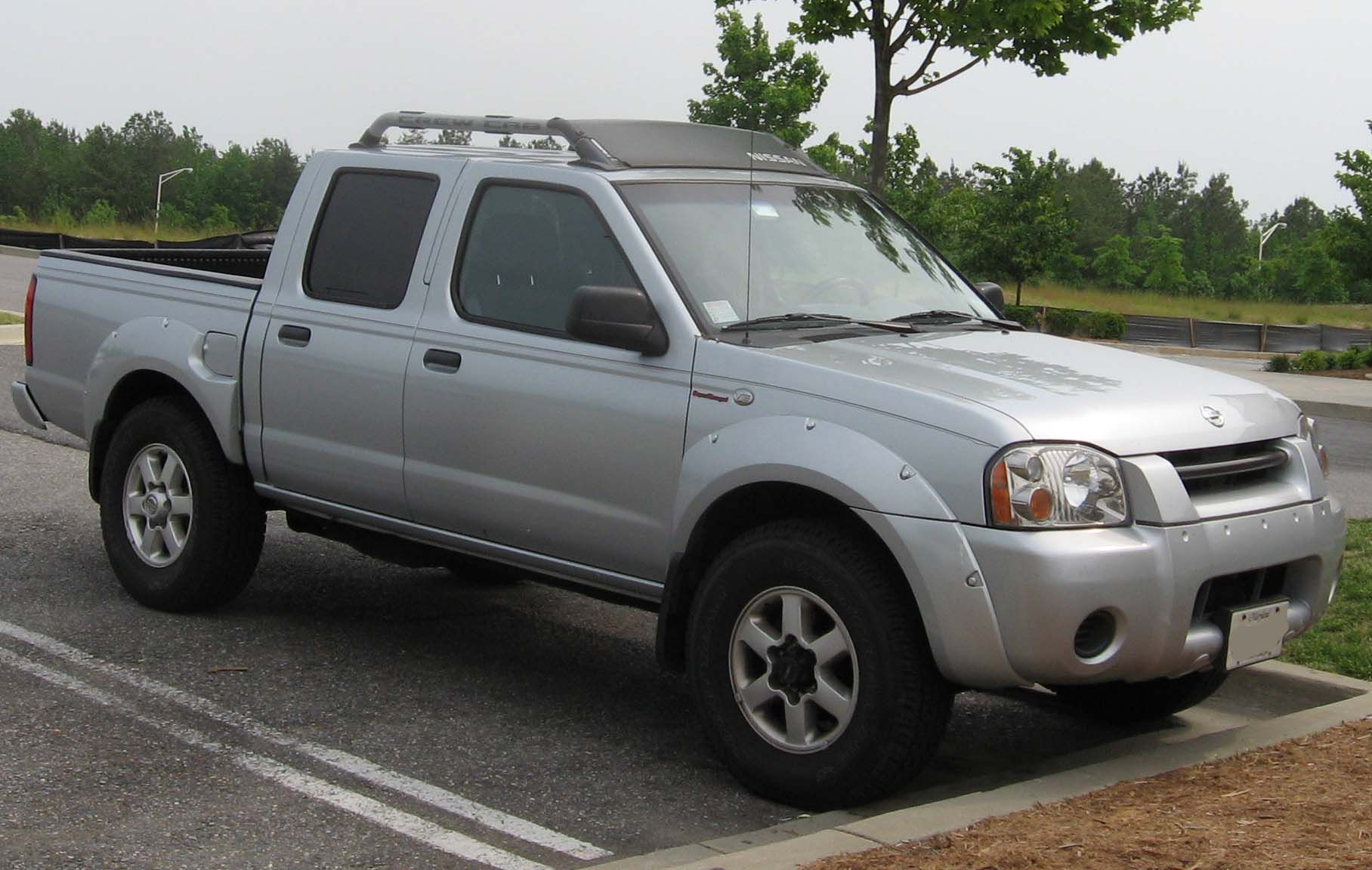
3. **Nissan Frontier**Transitioning confidently into the mid-size segment, drivers are often on the hunt for a truck that delivers significantly enhanced towing capacities and more robust off-road capabilities, yet without the full commitment, bulk, and often higher operating costs associated with a larger, less fuel-efficient full-size truck. Mid-size trucks, exemplified perfectly by the Nissan Frontier, frequently strike this coveted balance with remarkable precision. They offer a welcome and substantial boost in both performance and utility that often comes with a remarkably similar price point and commendable fuel economy when compared to their smaller counterparts. Consequently, they present an ideal compromise, delivering that extra measure of power and versatility for only a marginal increase in overall operational cost, making them incredibly attractive to a wide array of buyers.
The Nissan Frontier immediately distinguishes itself within the competitive mid-size truck category by boasting an impressive reliability rating of 4.0 out of 5.0 on RepairPal. This formidable rating not only unequivocally confirms its strong standing among peers but also proudly places it as the 1st out of 7 mid-size trucks within RepairPal’s comprehensive assessment, a testament to its superior engineering. Such a high and commendable reliability rating is further complemented by its remarkably low annual repair cost, which stands at an exceptionally budget-friendly $470—a figure that is significantly lower than the average for its entire segment. This makes the Frontier an extraordinarily economical choice for owners who are acutely aware of their long-term expenditure and maintenance budgets.
From the informed perspective of professional mechanics, the consistent recommendation of the Nissan Frontier becomes abundantly clear, particularly when considering its outstanding ratings relative to its direct competitors. In the professional automotive world, a truck that proficiently combines both high, unwavering reliability and genuine affordability in maintenance is an undeniable and highly sought-after winner. It begs the question: who wouldn’t wholeheartedly advocate for a vehicle that consistently saves its owners money on repairs while simultaneously and dependably performing all its intended duties with consistent quality? The Frontier effortlessly embodies this ideal, making it a distinct favorite among those automotive experts who truly comprehend the comprehensive, long-term costs and benefits of vehicle ownership.
While the Nissan Frontier excels remarkably in its core attributes of reliability and affordability, its projected lifespan presents a more nuanced and considered picture when directly compared to some of the absolute longest-lasting trucks on this extensive list. Owners can generally anticipate the Frontier to provide steadfast service for at least 100,000 miles, with diligent and proactive maintenance potentially extending its robust operational life to the respectable 200,000-mile mark. This implies a variability in its ultimate endurance; some well-used Frontiers might not quite reach a full decade of consistent use, while others, meticulously cared for, could comfortably exceed that milestone, profoundly depending on the level of care they receive and the driving conditions they encounter.
Consequently, when benchmarked directly against other pickup trucks that are widely celebrated for their truly exceptional and multi-generational longevity, the Nissan Frontier, while incredibly reliable in its prime, might not be considered to possess the same “remarkable” extended lifespan. It consistently offers a solid, dependable, and highly economical service for a very respectable period. However, its outstanding day-to-day reliability, coupled with its notably low cost of ownership throughout its operational life, still positions it as a highly recommended and undeniably valuable asset for those seeking a reliable and budget-friendly mid-size option.
Car Model Information: 2015 Nissan Frontier PRO-4X
Categories: All set index articles, Articles with short description, Nissan vehicles, Set index articles on cars, Short description is different from Wikidata
Summary: The Nissan Frontier is a nameplate used on three different pickup truck models by Nissan:
Nissan Frontier (international), an alternative nameplate for the NP300/Navara on some markets
Nissan Frontier (North America), a rebadged NP300/Navara from 1997 to 2021, then became a separate model since 2021
Nissan Frontier Pro, a rebadged Dongfeng Z9 PHEV that will be available from 2025.
Get more information about: Nissan Frontier
Buying a high-performing used car >>>
Brand: Nissan Model: Frontier
Price: $18,090 Mileage: 154,112 mi.
Read more about: Buyer Beware: 8 SUVs That Are Known to Fail Frequently Before 100,000 Miles
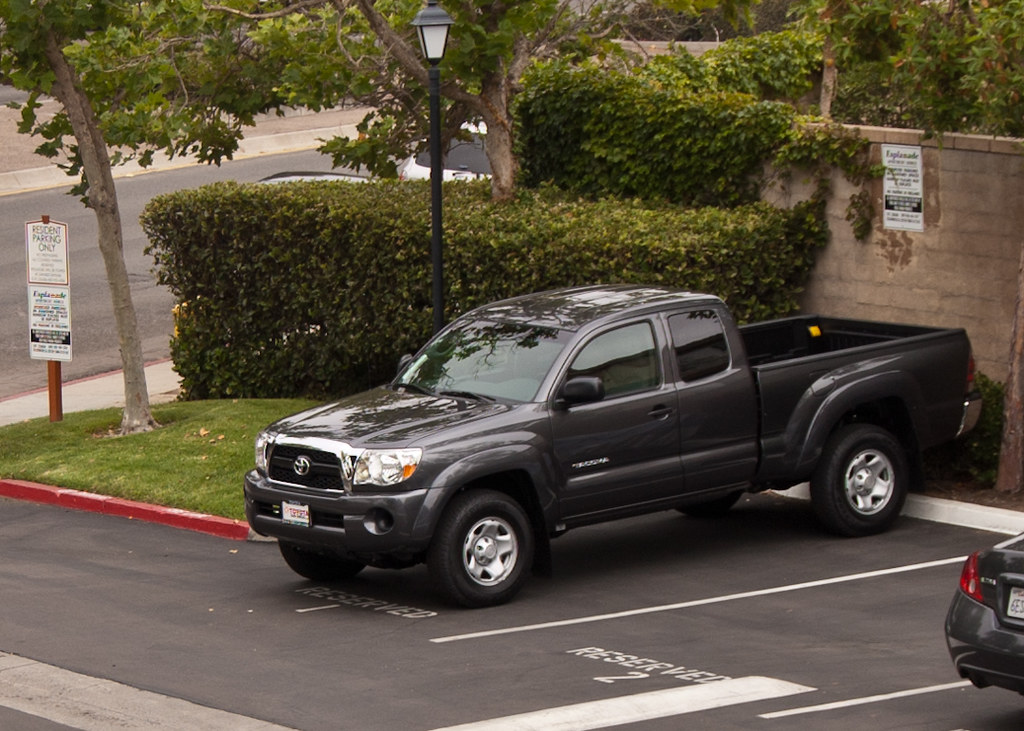
4. **Toyota Tacoma**The Toyota Tacoma has, for an extensive period, rightfully held a formidable and almost revered reputation within the truck world, a standing that is perhaps best encapsulated by U.S. News’ vivid description of it as possessing “nearly unstoppable reliability.” This potent statement alone speaks volumes about the Tacoma’s intrinsic build quality, its meticulously engineered components, and the unwavering consistency of its performance. Mechanics frequently and enthusiastically recommend the Tacoma, not merely for its steadfastness and long-term dependability, but also for its truly impressive and widely celebrated off-road competence, making it an unequivocal go-to choice for avid adventure seekers and professionals who regularly navigate the most challenging and unforgiving terrains.
A profoundly significant contributor to the Toyota Tacoma’s unparalleled off-road prowess is its generous and well-engineered 9.4 inches of ground clearance. This specific measurement is particularly noteworthy and a point of pride, as it often surpasses the ground clearance found even in some full-size pickup trucks, thereby granting the Tacoma a distinct and crucial advantage when encountering rugged environments. Such an elevated clearance empowers the Tacoma to confidently tackle substantial obstacles, navigate uneven surfaces, and traverse challenging paths with far greater ease, stability, and overall confidence than many other trucks in its direct mid-size segment. This capability reduces the risk of undercarriage damage, a common concern for off-road enthusiasts.
This superior and inherent off-road capability often directly translates into a lower incidence of mechanical problems, particularly for those trucks that are routinely subjected to demanding off-road driving conditions. While no vehicle design implicitly encourages reckless or negligent behavior, the Tacoma’s purpose-built design and robust construction mean that owners can approach challenging terrains and untamed wilderness with a significantly greater sense of security and less apprehension about potential damage. Its fundamental toughness and reinforced components are specifically designed to mitigate the accelerated wear and tear that might otherwise prematurely lead to significant issues in less capable or less robustly engineered vehicles, further cementing its reliability credentials.
The Toyota Tacoma boasts an average operational lifespan that impressively ranges from a substantial 200,000 to an astounding 300,000 miles. Achieving the higher end of this impressive spectrum, or even potentially exceeding it, is, as with any vehicle, highly dependent on a myriad of factors. These factors include diligent and consistent maintenance practices, the quality of driving habits, and the prevailing environmental and road conditions encountered over its lifetime. For instance, a meticulously maintained Tacoma that achieves 250,000 miles without requiring any major, costly repairs could easily translate to approximately 17 years of unwavering and reliable usage.
This exceptional longevity, combined with its renowned off-road capabilities and strong resale value, firmly positions the Toyota Tacoma as an outstanding long-term investment. Its ability to withstand both the daily grind and extreme adventures while maintaining its structural integrity and operational efficiency is a testament to Toyota’s engineering philosophy. It’s not just a truck that mechanics recommend; it’s a truck that embodies the spirit of durability and adventure, making it a perennial favorite for those who demand the utmost from their mid-size pickup.
We’ve explored the robust small and mid-size pickup trucks that consistently earn a nod of approval from seasoned mechanics, highlighting their blend of utility, efficiency, and steadfast performance. Now, our journey takes us deeper, venturing into the uniquely engineered Honda Ridgeline and then into the formidable realm of full-size powerhouses that redefine durability and capability. These are the trucks that not only tackle the most demanding jobs with aplomb but also promise an unwavering lifespan, making them truly invaluable assets for serious truck owners.
Car Model Information: 2024 Toyota Tacoma SR5
Name: Toyota Tacoma
Caption: 2020 Toyota Tacoma TRD Off-Road
Manufacturer: Toyota
Production: January 1995 – present
ModelYears: 1995–present
Class: unbulleted list
Layout: Front-engine, rear-wheel-drive layout
Predecessor: Toyota Hilux (N80)
Categories: 2000s cars, 2010s cars, 2020s cars, All-wheel-drive vehicles, All Wikipedia articles written in American English
Summary: The Toyota Tacoma is a pickup truck manufactured by Japanese automobile manufacturer Toyota since 1995. The first-generation Tacoma (model years 1995 through 2004) was classified as a compact pickup; subsequent models are classified as mid-sized pickups. The Tacoma was Motor Trend’s Truck of the Year for 2005.
As of 2015, the Tacoma was sold in the United States, Canada, Mexico, Costa Rica, Bolivia, Bermuda, and the French overseas collectivity of New Caledonia. Most markets across the world receive the Toyota Hilux in lieu of the Tacoma.
The name “Tacoma” was derived from the Coast Salish peoples’ name for Mount Rainier in the U.S. state of Washington.
Get more information about: Toyota Tacoma
Buying a high-performing used car >>>
Brand: Toyota Model: Tacoma
Price: $36,294 Mileage: 4,821 mi.
Read more about: Beyond the Zombie Hordes: 12 Indestructible Beasts to Master Any Apocalypse

5. **Honda Ridgeline**The automotive landscape today sees very few trucks built with a unibody frame, which immediately positions the Honda Ridgeline as a truly distinct and special contender in its segment. Unlike the vast majority of pickup trucks that adhere to the traditional body-on-frame design, the Ridgeline is ingeniously constructed on a car chassis. This innovative foundational approach aligns its architecture more closely with that of a crossover SUV, setting it apart from its conventional truck brethren and influencing its unique performance characteristics right from the start. This singular design choice is absolutely central to understanding why mechanics approach its recommendation with such specific considerations and enthusiasm for certain applications.
Experienced mechanics, deeply loyal to their craft and possessing a wealth of real-world knowledge, will upfront convey that the Honda Ridgeline does not boast the same raw, rugged off-road prowess as its more traditional body-on-frame peers. Its unibody frame, while inherently strong and providing excellent structural rigidity, tends to be less flexible on extremely uneven or highly articulated surfaces, and it naturally comes equipped with a comparatively lower ground clearance. However, these same automotive experts are equally quick to highlight the significant and often overlooked trade-offs that make the Ridgeline an exceptionally appealing option for a specific demographic of truck buyers. They consistently emphasize its superior safety, a direct benefit of its integrated crumple zones designed for passenger protection, and its commendable fuel efficiency, which is a tangible advantage derived from its lighter overall weight.
A major draw for many who require legitimate truck utility without sacrificing the comforts of daily driving, the Ridgeline consistently delivers better driving dynamics and a markedly more comfortable, refined ride on highways compared to conventional body-on-frame trucks. This translates into a sophisticated, car-like driving experience, characterized by responsive handling and a smoother suspension feel that significantly reduces driver fatigue on longer journeys. This emphasis on on-road civility and comfort makes it an ideal choice for families or individuals who primarily use their truck for commuting, light hauling, or weekend adventures that don’t involve extreme off-road punishment.
Owners can reasonably expect the Ridgeline to achieve an impressive 300,000 miles if it is not consistently subjected to overly harsh driving conditions or routinely exposed to demanding off-road tracks. This remarkable projection suggests a potential for up to 20 years of robust and reliable service, based on an annual average of 15,000 miles driven. While acknowledging that pickup trucks are inherently designed for a degree of rugged endurance, the Honda Ridgeline, this unibody overachiever, genuinely thrives and offers its absolute best performance and maximum longevity when its off-road tasks are approached with a more measured hand, essentially playing to its engineering strengths rather than pushing against them.
Despite years of what might be perceived as sluggish sales figures within the highly competitive truck market, with Honda selling just 45,000 copies of the Ridgeline in all of 2024, it consistently remains a top choice for reliability, according to rigorous data compiled by Consumer Reports. This independent and influential endorsement speaks volumes about its fundamental quality, consistent performance, and long-term dependability. It strongly proves that the Ridgeline’s unconventional design is not a weakness but a significant strength for many owners who value safety, comfort, efficiency, and enduring reliability in their versatile pickup.
Car Model Information: 2024 Honda Ridgeline Sport
Name: Honda Ridgeline
Manufacturer: Honda
Caption: 2022 Honda Ridgeline
Production: 2005–early 2015,2016–present
ModelYears: 2006–2014,2017–present
Assembly: Alliston, Ontario
Class: Pickup truck#Mid-size pickup truck
BodyStyle: 4-door pickup truck
Layout: ubl
Categories: 2010s cars, All-wheel-drive vehicles, All Wikipedia articles written in American English, Articles with short description, CS1 maint: multiple names: authors list
Summary: The Honda Ridgeline is a mid-size pickup truck manufactured and marketed by Honda since the 2006 model year, over two generations in a unibody, crew–cab, short-box configuration with a transverse-mounted engine.
Get more information about: Honda Ridgeline
Buying a high-performing used car >>>
Brand: Honda Model: Ridgeline
Price: $33,884 Mileage: 22,031 mi.
Read more about: Beyond the Quarter-Million Mark: Our Shortlist of Cars Engineered for Extreme Longevity
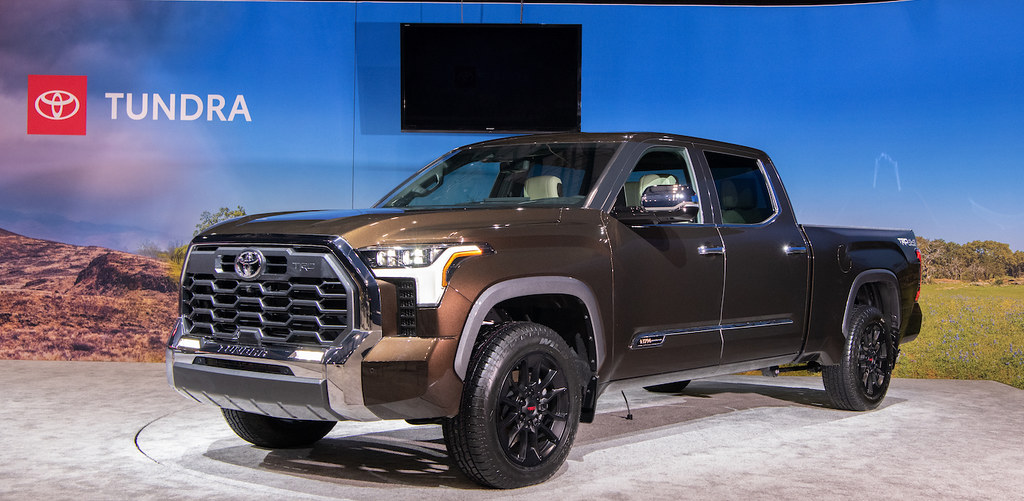
6. **Toyota Tundra**For over two decades, the Toyota Tundra has maintained a formidable and unbroken presence in the North American truck market, a testament to its unwavering popularity and the intrinsically high standards of its build quality. Its consistent production record, without a single year skipped since its inception, speaks volumes about its wide acceptance and the deep trust it has garnered from a vast and loyal base of owners. It is now widely accepted as arguably the most reliable full-size truck money can buy, and therefore, it would be an oversight—indeed, almost a professional crime—to compile such a definitive list without its prominent inclusion and detailed discussion.
Even highly respected and influential review sites like J.D. Power and Consumer Reports consistently express profound admiration for the Tundra, and their reasons for this high regard are abundantly clear and consistently reiterated. Their recommendations largely hinge on its stellar, almost legendary reliability, a foundational hallmark trend consistently observed across the entire Toyota vehicle lineup. The Tundra has, over its many years in service, accumulated an exceptional and well-documented track record of outstanding reliability ratings. This consistent performance was particularly highlighted in 2019 when it was proudly named J.D. Power’s most dependable vehicle within the fiercely competitive full-size segment, a significant and well-deserved accolade that further solidifies its bulletproof reputation among experts.
While some enthusiasts and industry observers might mistakenly attribute the Tundra’s legendary reliability solely to its being fully manufactured and assembled in the United States, a more accurate and foundational reason for its steadfastness lies intrinsically in its Japanese manufacturer’s meticulous engineering philosophy and unwavering commitment to quality. This deeply ingrained dedication to designing and building vehicles for the long haul translates directly into remarkable longevity for the Tundra. Its rugged construction, featuring robust components and a heavy-duty chassis, is durable enough to comfortably endure up to an impressive 300,000 miles. Remarkably, this often proves to be far from its ultimate operational limit when owners commit to proper, consistent, and proactive care throughout its extensive life. There are numerous well-documented reports of Tundras logging well over 300,000 miles before necessitating any major, budget-straining repairs, underscoring its inherent resilience.
This extraordinary endurance means that with diligent and scrupulous maintenance, owners could potentially “milk out” over 20 years of steadfast service from their Tundra, based on the established annual average of 14,263 miles driven. However, in the spirit of realistic expectations and avoiding overly optimistic projections, it’s often prudent to anticipate approximately 14 years of robust, dependable usage, ensuring that any extended longevity comes as a pleasant and highly valued bonus. When considering the demanding requirements of a full-size truck—a vehicle expected to confidently handle payloads upwards of 2,000 pounds and perform as a formidable off-road beast—the Tundra’s proven reliability and exceptional longevity make it a truly compelling, responsible, and enduring investment for those who prioritize unwavering performance and peace of mind.
Car Model Information: 2024 Toyota Tundra Hybrid Capstone
Name: Toyota Tundra
Manufacturer: Toyota
Production: May 1999 – present
ModelYears: 2000–present
Assembly: San Antonio,Texas
Class: Pickup truck#Full-size pickup truck
Layout: unbulleted list
Related: Toyota Sequoia
Predecessor: Toyota T100
Caption: 2022 Toyota Tundra Limited
Categories: 2000s cars, 2010s cars, 2020s cars, All-wheel-drive vehicles, All Wikipedia articles written in American English
Summary: The Toyota Tundra is a full-size pickup truck manufactured in the United States by the Japanese manufacturer Toyota since May 1999. The Tundra was the second full-size pickup to be built by a Japanese manufacturer (the first was the Toyota T100), but the Tundra was the first full-size pickup from a Japanese manufacturer to be built in North America. The Tundra was nominated for the North American Truck of the Year award and was Motor Trend magazine’s Truck of the Year in 2000 and 2008. Initially built in a new Toyota plant in Princeton, Indiana, production was consolidated in 2008 to Toyota’s San Antonio, Texas, factory.
Get more information about: Toyota Tundra
Buying a high-performing used car >>>
Brand: Toyota Model: Tundra
Price: $149,500 Mileage: 4,613 mi.
Read more about: Red Flag Alert: Critical Transmission Problems in Popular Pickup Trucks Around the 90,000-Mile Mark
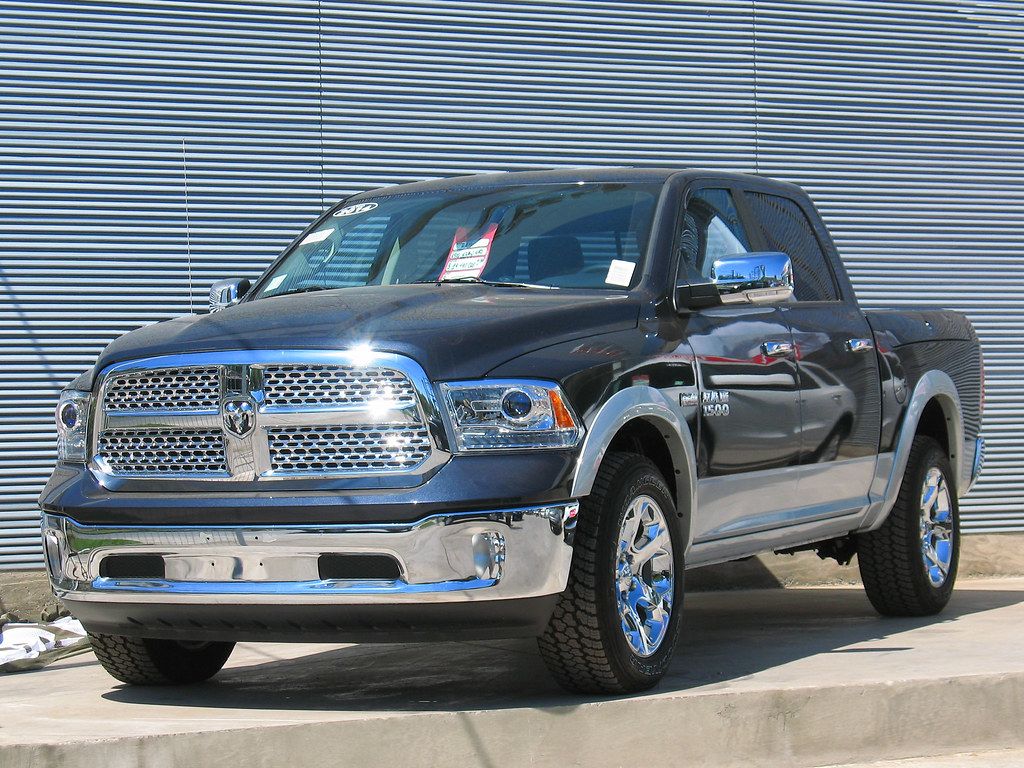
7. **Dodge Ram 1500**The Ram 1500 has firmly established itself as a truck synonymous with inherent road ruggedness, undeniable capability, and the visceral power of its commanding engines. What truly sets it apart in a segment where utilitarian function often dictates design is its remarkable and almost unprecedented ability to seamlessly integrate a top-notch interior, complete with the most modern infotainment systems, into such an incredibly capable and performance-oriented platform. This is a genuinely impressive feat, as a luxurious and technology-rich cabin and superb off-road or heavy-hauling performance are typically considered mutually exclusive features in the traditional truck world. The Ram 1500 effectively shatters this perceived dichotomy, offering the very best of both worlds without compromise.
Its exceptional blending of uncompromising comfort and formidable capability has not gone unnoticed by industry experts and automotive enthusiasts alike. The Ram 1500 has been deservedly honored with MotorTrend’s coveted “Truck of The Year” award on multiple occasions, a clear and resounding indicator of its leadership, groundbreaking design, and superior execution within the competitive full-size segment. Furthermore, it consistently graces U.S. News’ prestigious list of “Best Full-Size Pickup Trucks,” affirming its widespread critical acclaim. With such a cascade of influential accolades, a professional mechanic’s explicit recommendation almost feels superfluous; the inherent quality, exceptional performance, and profound desirability of the Ram 1500 are self-evident, making it an undoubtedly sound and highly attractive purchase for discerning buyers who demand excellence in every facet of their vehicle.
Beyond its undeniable performance and luxurious appointments, the Ram 1500 also demonstrates commendable financial prudence through its surprisingly low annual maintenance costs. Data compiled from RepairPal, a trusted source for automotive repair insights, indicates that the average annual repair cost for the Ram 1500 stands at a respectable $691. This figure is notably $245 less than the average for its entire full-size truck segment, translating into significant and tangible savings over the truck’s operational lifespan. In an era where unwavering reliability and genuine affordability are increasingly paramount considerations for any significant vehicle ownership, the Ram 1500 emerges as a near-perfect synthesis, representing an ideal blend of all the most sought-after attributes: raw performance, luxurious comfort, proven reliability, and compelling cost-effectiveness.
With diligent and consistent regular maintenance practices, owners can realistically expect to achieve an impressive 300,000 miles from their Ram 1500. Based on the established average yearly mileage of 14,263 miles in the United States, this translates to an astounding potential of over 21 years of steadfast and highly reliable usage. Given that few individuals typically choose to retain a single vehicle for such an extended period, the Ram 1500 is highly likely to significantly exceed the longevity expectations of most owners, providing immense peace of mind. Even with more conservative estimates, most owners should comfortably get at least 250,000 miles from their Ram 1500s, which still equates to more than 15 years of exceptionally dependable and fulfilling service, truly representing outstanding long-term value.
Car Model Information: 2023 RAM 1500 Limited
Name: Dodge Ram / Ram pickup
Caption: 2017 Ram 1500 Express
Manufacturer: Dodge
ModelYears: 1981–present
Production: October 1980 – present
Class: Pickup truck#Full-size pickup truck,Pickup truck#Heavy-duty pickup truck
Layout: Front-engine, rear-wheel-drive layout,rear-wheel drive
Predecessor: Dodge D series
Categories: 1990s cars, 2000s cars, 2010s cars, 2020s cars, All-wheel-drive vehicles
Summary: The Ram pickup (marketed as the Dodge Ram until 2010 when Ram Trucks was spun-off from Dodge) is a full-size pickup truck manufactured by Stellantis North America (formerly Chrysler Group LLC and FCA US LLC) and marketed from 2010 onwards under the Ram Trucks brand. The current fifth-generation Ram debuted at the 2018 North American International Auto Show in Detroit, Michigan, in January of that year.
Previously, Ram was part of the Dodge line of light trucks. The Ram name was introduced in October 1980 for model year 1981, when the Dodge D series pickup trucks and B series vans were rebranded, though the company had used a ram’s-head hood ornament on some trucks as early as 1933.
Ram trucks have been named Motor Trend magazine’s Truck of the Year eight times; the second-generation Ram won the award in 1994, the third-generation Ram heavy-duty won the award in 2003, the fourth-generation Ram Heavy Duty won in 2010 and the fourth-generation Ram 1500 won in 2013 and 2014, and the current fifth-generation Ram pickup became the first truck in history to win the award four times, winning in 2019, 2020, 2021 and most recently, 2025.
Get more information about: Ram pickup
Buying a high-performing used car >>>
Brand: Ram Model: 1500
Price: $54,660 Mileage: 3,464 mi.
Read more about: Beyond the Garage: Unearthing the Most Practical and Enjoyable Classic Cars for Your Daily Drive
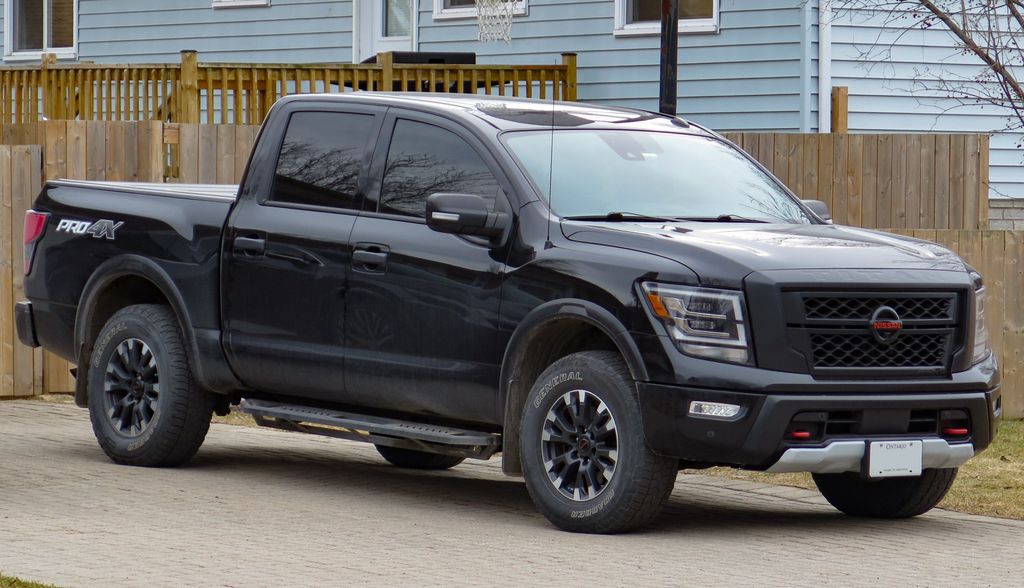
8. **Nissan Titan**While the Nissan Titan might not always lead its highly competitive class in sheer, brute-force towing capacity, it masterfully distinguishes itself with an unwavering focus on passenger comfort and an interior ambiance that truly sets it apart. Its spacious and thoughtfully designed cabin often feels less like the utilitarian interior typically found in the average full-size truck and more akin to a comfortable, inviting home environment. Furthermore, the Titan has diligently carved out a solid reputation for possessing advanced features, consistently placing it at the forefront of modern infotainment and connectivity options, thereby providing a refined and technologically-rich driving experience that many contemporary truck owners now actively seek.
With these priorities in mind, the Nissan Titan often positions itself as less of a raw, unadulterated performance truck when directly compared to some of its more aggressively powered and specialized competitors in the full-size segment. However, this nuanced emphasis certainly does not imply any deficiency in its core hauling capabilities; on the contrary, the Titan remains a highly dependable and robust vehicle for a wide array of demanding tasks and is impressively capable of towing substantial weights exceeding 9,000 pounds. Nevertheless, for those whose primary and singular requirement is an absolute “towing monster” with class-leading figures, other trucks within the full-size segment might indeed offer more specialized and higher-rated capabilities. Consequently, mechanics typically recommend the Titan for its outstanding overall quality, its unwavering reliability, and its remarkably low ownership costs, making it appealing to a broader, more balanced demand for a capable and comfortable truck.
Indeed, the Titan’s impressive statistical performance consistently underscores these professional recommendations. It proudly ranks 2nd out of 17 in reliability among full-size trucks, a testament to its robust engineering, meticulous assembly, and its strong propensity for encountering significantly fewer mechanical problems throughout its operational life. Complementing this stellar reliability is an exceptionally low annual maintenance cost, averaging only $555. This figure is a significant $381 less than the average for the entire full-size truck segment and, quite remarkably, $97 less than the average for *all* car models, not just trucks. This shocking affordability means owners can expect to spend considerably less on the Nissan Titan’s routine upkeep and unexpected repairs than they might on some sedans, making it an incredibly attractive and remarkably economical choice for long-term ownership.
The Titan’s inherent and deeply embedded reliability directly contributes to its impressive projected lifespan of 250,000 miles, a formidable benchmark for any vehicle. This robust longevity translates to over 16 or 17 years of dedicated, dependable service, depending on whether one uses an annual mileage average of 15,000 or 14,263 miles, respectively. Even at the 200,000-mile mark, a well-maintained Nissan Titan is fully expected to continue providing optimal usage, a clear indicator of its enduring build quality and thoughtful design. There are few absolute limits to how long a Titan can truly last; its actual ultimate mileage will largely be determined by the owner’s diligent maintenance practices and consistent, responsible driving habits. A crucial piece of advice for maximizing its lifespan, particularly in diverse climates, is to ensure it is thoroughly protected against rust, a common enemy of vehicle longevity. With that safeguard diligently in place, owners can confidently anticipate possessing a versatile and dependable truck that serves them faithfully for what can truly feel like half a lifetime.
—
**Additional Information: The Enduring Appeal of Pickup Trucks in the Modern Age**
As we conclude our comprehensive look at these mechanic-recommended pickup trucks, it’s worth taking a moment to consider the broader context of vehicle longevity and evolving consumer demand. Those familiar with typical vehicle lifespans may have already noted a significant and compelling trend: pickup trucks, across the board, tend to possess a remarkable capacity to outlast most other car types. The average pickup truck can comfortably reach 200,000 miles, and quite frequently, this operational life extends impressively to 300,000 miles. In stark contrast, the longevity of the average sedan typically revolves around a 150,000-mile lifespan. This notable disparity is often attributed to the inherently tougher and more rugged builds of trucks, which are engineered with heavier-duty components designed to withstand greater stresses.
While this robust and formidable design makes them incredibly capable for challenging off-road expeditions or heavy-duty tasks, the practical reality for most owners is that they don’t spend every single day, week, or year navigating punishing terrains or hauling maximum loads. This allows their strong chassis, reinforced components, and durable powertrains to experience significantly less cumulative stress when predominantly cruising on paved roads, thereby providing ample structural integrity and mechanical headroom for extended longevity. This enhanced durability and unparalleled versatility may partially explain the surging demand for pickup trucks and SUVs today, notably outpacing traditional sedans and compact hatchbacks in market popularity. For instance, Car and Driver’s influential list of 25 bestselling cars, trucks, and SUVs for 2022 strikingly revealed that trucks and SUVs accounted for an overwhelming 19 of those highly sought-after models, showcasing a clear shift in consumer preference.
It is abundantly clear that the profound appeal of trucks to American consumers stems from a compelling and multifaceted combination of factors: their expansive cargo areas, generously spacious cabins that offer superior comfort, and their increased functionality that adapts to a myriad of professional and recreational needs. Despite their potential disadvantages, such as increased fuel consumption, a larger physical footprint requiring more parking space, or a higher initial purchase price, for a substantial segment of Americans, the practical benefits, the robust capabilities, and the sheer versatility of these vehicles undeniably outweigh any perceived drawbacks. This evolving landscape makes the informed choice of a reliable pickup truck not merely a practical transportation decision, but a strategic investment in a steadfast partner that is genuinely built to go the distance, providing unwavering service for years to come.
**Final Thoughts: Navigating Your Purchase with Expert Insight**
Ultimately, every single pickup truck that earns a mechanic’s recommendation does so because it possesses a distinct and highly valued selling point that makes it exceptionally coveted in the market. Our extensive exploration throughout this article has revealed a diverse and compelling range of fundamental reasons for these expert endorsements, spanning from unparalleled, almost bulletproof reliability and compelling cost-effectiveness in ownership to superior dependability, uncompromising build quality, commendable fuel efficiency, and formidable hauling capacity. Given this broad spectrum of distinct attributes and specialized strengths, it is profoundly wise to avoid purchasing any truck model without first conducting your own thorough survey and diligent research, aligning with your personal requirements.
Read more about: Dodgy Drives and Mechanical Mayhem: 14 Japanese Cars You Absolutely Should Not Buy, According to an Automotive Expert
Such meticulous due diligence ensures that you don’t inadvertently acquire a super high-performance, specialized truck when your primary need might simply be a dependable, versatile, all-round utility vehicle for daily tasks and occasional heavy lifting. Therefore, as you navigate the bustling market for mechanic-recommended trucks, it is absolutely essential to ensure that the specific reasons for a particular model’s endorsement precisely align with your desired specifications, your anticipated usage patterns, and your overall personal requirements. By meticulously making such a judicious and informed choice, you will secure a vehicle that not only meets but confidently exceeds your expectations, providing many years of steadfast, dependable service and truly maximizing your investment in a workhorse designed for the long haul.

